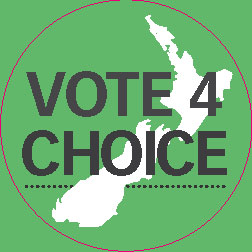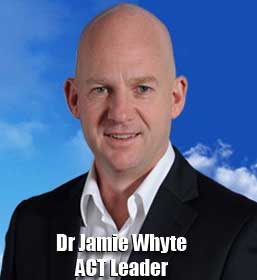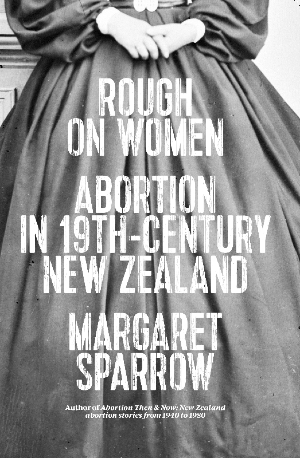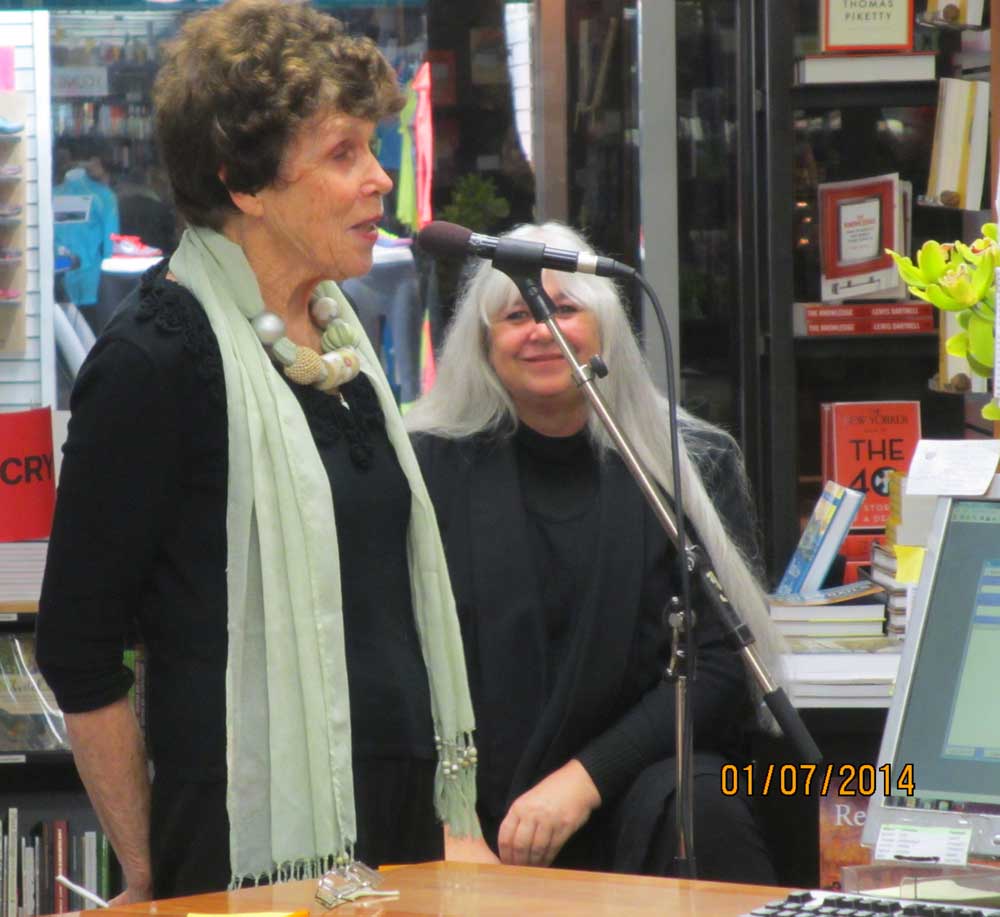by admin | 2 Sep, 2014 | Our Blog
 This week, the Vote Choice series looks at Dr Jamie Whyte, the leader of the ACT party, and his views on abortion and decriminalisation. A google search of Whyte and abortion provides little in the way of his opinion but does provide an interesting array of articles to read, many from his lecturing days in the UK and/or other academic responses to some of his philosophical arguments. So it was back again to Family First’s Value Your Vote page for information on where Whyte stands in relation to abortion law reform (thanking them is becoming a bit too common for comfort, just saying).
This week, the Vote Choice series looks at Dr Jamie Whyte, the leader of the ACT party, and his views on abortion and decriminalisation. A google search of Whyte and abortion provides little in the way of his opinion but does provide an interesting array of articles to read, many from his lecturing days in the UK and/or other academic responses to some of his philosophical arguments. So it was back again to Family First’s Value Your Vote page for information on where Whyte stands in relation to abortion law reform (thanking them is becoming a bit too common for comfort, just saying).
It has always been ALRANZ’s understanding that despite the libertarian positioning of the party that it was generally anti-choice. Possibly this perception has been clouded by Andy Moore’s former role as an office-holder of ACT on Campus. However, Whyte seems to be setting a different tone in relation to abortion law reform.
Whyte received sad faces from Family First, in the following areas:
 Supports decriminalization of abortion with note that this should be “subject to a restriction regarding the age of the foetus”.
Supports decriminalization of abortion with note that this should be “subject to a restriction regarding the age of the foetus”. - Opposes “informed consent” for abortion (which is usually anti code for telling pregnant people medically unverified lies – e.g. an abortion could increase the risk of breast cancer – something that has no basis in science!)
- Undecided on the right to life of the unborn child, which he caveats with the comment: Which unborn child are you talking about? A 6 week old foetus or a 37 week old foetus? The difference is important.
ALRANZ would also agree. There is a difference between a fully viable baby at 37 weeks and one still in an embryonic state at 6 weeks. Although it is always good to point out the obvious that no doctor would perform a ‘termination’ at 37 weeks so this is a bit of a false dichotomy; but one that might explain his comment of only supporting decriminalisation in relation to restrictions on the age of the fetus. He may sympathise with the Greens’ policy, which would only allow abortion on request up to 20 weeks?
Where we disagree (and we’d be interested to know his rationale for this) is on parental notification. He would support attempts to change the law to require parental notification for abortions where the pregnant person is under 17.
All in all Jamie Whyte, and perhaps even the party itself, would appear to be a potential ally for a very narrowly focused abortion law reform effort. Out of those ACT candidates that responded to Family First (5 out of 12, including Whyte), three support law reform (Whyte, John Thompson and Stephen Berry), while David Seymour is undecided and Ian Cummings oppose it.
However, taking a wider reproductive justice view, and given ACT’s opposition to free healthcare — its policy (pdf) says “ACT does not support free healthcare as this results in the provision of a service which is not valued” — as well as its “one country, one law” attacks on Māori, any alliance over decriminalisation would likely break down over treatment of marginalised groups and access to abortion services. It’s no use decriminalising abortion if access to services, as well as to health-care in general (not to mention income equality) — are reduced through other means.
Seymour’s comment was “The current law is unclear and should be clarified so that the law is in line with actual practice and so that all cases are treated equally. Such a law would be a conscience vote and I would be guided by my electorate if elected. There seems to be some potential there.
******************
CLICK HERE TO DONATE
TO HELP US CONTINUE OUR PRO-CHOICE WORK
by admin | 4 Jul, 2014 | Media Release
ABORTION LAW REFORM ASSOCIATION OF NEW ZEALAND
1 July 2014 FOR IMMEDIATE RELEASE
Book Launch: The Untold Stories of Abortion in 19th Century New Zealand

The tragic toll of unsafe illegal abortion in 19th Century New Zealand is the focus of a powerful new book by longtime women’s health advocate Dame Margaret Sparrow that is being launched today in Wellington. (Photos of launch by Noemi.)

Dame Margaret Sparrow at the launch of ‘Rough on Women’ at Unity Books on 1 July 2014. (Unity’s Jacqui Brokenshaw, right, also spoke at the launch.)
The book Rough on Women: Abortion in 19th-Century New Zealand (Victoria University Press) tells the stories of 25 women who died at a time when choices were severely limited.
(more…)
by admin | 8 May, 2014 | Our Blog
ALRANZ has recently published a background information sheet on disability and abortion. It is intended not as a definitive position, but a starting point for engagement and the articulation of difference. The document itself has been a long time in the making, requiring careful reflection, evidenced based arguments and internal discussion within ALRANZ.
We recognize that the topic is not an easy one to engage on. There are strong feelings on both sides, which have a tendency to obscure the commonalities that could bring disability rights and reproductive right activists together. This is not to say that hard conversations will not have to be had, but that taking the initial steps toward meaningful dialogue is necessary.
The document provides:
- A basis for common ground;
- Discussion on where controversy arises;
- A legal basis for challenging ongoing inequalities in New Zealand; and
- What can be done
As part of the last section, ALRANZ reaffirms its commitment to the following principles:
- free access to contraception and sterilization without coercion, including the freedom from nonconsensual sterilisation;
- the right to accurate, balanced information about reproductive health and disability;
- the right to have or refuse prenatal testing;
- the right to continue or terminate a pregnancy when a fetal diagnosis is made;
- the right to adequate social and financial support for raising a child with a disability; and
- the right to equal access to fertility-enhancing technologies.
(For a more in-depth and longer Discussion Document click here.)
ALRANZ welcomes your feedback and thoughts. If you are involved in or represent a group involved in disability rights and would like to talk with someone from ALRANZ, please contact us at info@alranz.org All comments on this post will be moderated. Comments are turned off on the Backgrounder and the longer Discussion Paper. And if you’re in any doubt, check out our comments policy.
*****
CLICK HERE TO DONATE
TO HELP US CONTINUE OUR PRO-CHOICE WORK
by admin | 16 Apr, 2014 | Our Blog
By Sabrina Muck
Dr N, a doctor working in a rural area with 30 years’ experience, was suspended for six months for illegally prescribing the medication misoprostol (Cytotec) to four patients in a manner contrary to legal pregnancy termination procedures specified in the Contraception, Sterilisation and Abortion Act. The case was reported in the ALRANZ newsletter in August 2013. It has now made the news again (with a slight delay) because the doctor’s suspension period has lapsed and she is allowed to practice, with conditions. The original decision of the Health Practitioners Disciplinary Tribunal (including an agreed summary of facts) is available here.
In its decision, the Tribunal established that Dr N’s actions amounted to professional misconduct (for example, failing to ensure the patient had adequate follow-up support if she decided to take the misoprostol; in another case, prescribing misoprostol without first having seen the patient in consultation; and in all cases, failing to record the details on the patients’ medical notes.) Dr N did not deny these allegations but argued that she had “allowed herself to become overwhelmed by the need to help those desperately seeking her help”, and had earlier indicated that she considered she was providing a necessary service.
This blog post does not seek to comment on whether Dr N’s actions constituted professional misconduct or otherwise – that is a matter for the Tribunal. However, the case raises wider questions about the state of abortion law in New Zealand, the most obvious being access and availability, particularly to women in rural areas. It is incredibly disappointing that in 2014, medical practitioners still have to resort to these kinds of “work-arounds” because their patients would otherwise face significant travel time and costs to access a service which should be available to all women. And that’s not even taking into account the necessary referral, certification and counseling procedures a patient would need to go through, which cannot always be provided easily or promptly in remote or rural areas. The witness evidence in Dr N’s case itself shines a light on this – when questioned by a student doctor about her decision to prescribe misoprostol to a patient, she responded that it would save the patient “a massive ordeal associated with a trip…for an abortion”, and in another situation reportedly told a nurse that “it was unfair not to give the patient these pills…if had to wait it would be too late.”
This latter comment also highlights the issue that because of the complicated procedures delays in the system are inevitable and can result in abortions being carried out later than is desirable for safety.
Our laws should not be putting doctors in a position where they may be compromising client care in an effort to help the women who come to see them. The criminalisation of abortion in New Zealand is in direct contravention of international treaties to which New Zealand is a signatory, especially with respect to the Convention on the Elimintion of all forms of Discrimination Against Women (CEDAW). And while New Zealand may be celebrating its recent ranking as “the most socially advanced country in the world”, we would do well to remember these are still the kinds of decisions and situations facing our doctors. Reading the coverage of the Dr N case in the papers just brings to light once again the continued and on-going need for access to safe, legal medical and surgical abortion in any situation where women choose that is the right path for them.
Sabrina Muck is a member of ALRANZ and is on the Governance Collective of the Auckland Women’s Centre.
—–
We’d particularly welcome comments from readers outside the main centres or who don’t live near a provider about any access difficulties they’ve experienced trying to get the reproductive health care they need.
********
CLICK HERE TO DONATE
TO HELP US CONTINUE OUR PRO-CHOICE WORK
by admin | 31 Mar, 2014 | Our Blog
I went to university in a small town in the American South – a tiny island of moderate politics in a swathe of conservative rural counties. There was a small abortion clinic a few blocks north of down town that served several neighbouring towns and counties (87% of American counties have no abortion provider. In non-metropolitan areas, that number is 97%.). In the era of increasing limitations on access to sexual and reproductive healthcare, hours had been cut back and the doctor was only on site a few hours, one day a week.
A group of anti-choice protesters, some students and some older town residents from the nearby churches, occupied the sidewalk every week, rain or shine. The tiny plot of land only had parking for a few staff cars, so patients had to park across the street at the big stationery store. The clinic, understaffed as it was, relied on volunteer escorts to accompany patients across the street and past the protesters to the clinic.
It wasn’t just about supporting patients. Fatal attacks had occurred at two other clinics in the state and at others around in the country. Although Dr George Tiller hadn’t yet been murdered while ushering at his church, he had been shot and his Kansas clinic bombed in two separate attacks. Eric Rudolph, who planted bombs at the 1996 Atlanta Olympics, two clinics, and a nightclub, had recently plead guilty after five years on the run. Arson and bomb threats occurred nationwide; dealing with threats and suspicious packages was standard training protocol for new staff.
At our clinic, escorts were briefed on buffer zone laws. The security guard kept a small, worn notebook, where he recorded details about each and every protester – arrival and departure, their behaviour, who brought their children, a record of calls to the police to report harassment. Some silently prayed well behind the line, but others frequently harassed patients.
My class schedule often conflicted, and so I didn’t spend as many afternoons at the clinic as I should have. Escorting was emotionally draining for us – I can only imagine what patients must have felt walking through a crowd of scorn and judgement, flanked only by a couple of young students. Yet many still stopped us as we led them into the reception area, turning to smile or quietly whisper ‘thank you.’ It broke my heart every time.
One of my first afternoons, I was there with two other friends. Holidays were coming up and students were heading out of town, so the protesters were down to the locals – the middle-aged man with his horrific sign and the Catholic woman with the line of children and rosary beads. We were chatting about our weekend plans when a car pulled up and stopped in the drive. We tensed – there were no appointments left that day – and glanced nervously at one another.
A thirty-something woman got out of the car carrying a little vase of carnations with a ‘Thank You!’ helium balloon tied to the vase. She walked over to us and said within earshot of the protesters, ‘Thank you. You were there for my sister when no one else was. You don’t hear it enough, but there are a lot of people who are grateful for what you do. Please pass this on to everyone inside.’ Dumbstruck, we smiled, clumsily strung together words to thank her, but she was back in her car and pulling away.
And so we cried. For her generous gesture, her sister, every patient, every doctor, every receptionist, every partner, friend, or family member who held a hand or offered a ride, every woman who suffered an unsafe abortion, for those who have felt the heartbreak of discovering a foetal anomaly, for a culture where our first reaction to an unexpected visitor was fear, and for a society where a trip to the doctor had become a political act requiring courage, security, and personal risk just to get in the door, never mind the complexity of the decision to choose abortion itself.
I know that New Zealand is not the United States and I sincerely hope the import of American anti-choice rhetoric stops with harassment, misinformation, and ribbons. But shame, stigma, and ill-informed judgement hurt even when not accompanied by pipe bombs.
Safe, private access matters, not just to patients, but to everyone. The receptionists, the nurses, the janitorial staff who clean the building, the staff and customers of neighbouring buildings – everyone who ensures that women have the ability to make private decisions about their own health. Choices about fertility, pregnancy, and abortion are complex and challenging in the best of circumstances. Women do not enter into them lightly and it is insulting to assume otherwise.
The Family Life International ‘vigil’ outside Wellington Hospital insensitively affects patients, staff, and visitors to the hospital, the majority of whom have nothing to do with abortion services and are likely facing their own challenging situations. It is difficult enough to be admitted to hospital or visit loved ones who are ill without being bombarded by chanting and stigma.
I do not contest FLI’s right to judge and disagree with the choices of others – I believe that informed discourse is the foundation of a free society – and while I personally doubt the efficacy of shaming others into supporting one’s view, I respect their decision to choose these tactics. I do, however, question their sincerity in promoting ‘a spirit of unity’ by disrupting the lives of innocent hospital patients and staff. There is a time and a place for respectful debate, and there is a time to allow individuals to seek medical services in private.
This was written by an ALRANZ member and reflects the author’s individual opinion. Please get it touch if you would like to share your own experience or thoughts on our blog.
*****************
CLICK HERE TO DONATE
TO HELP US CONTINUE OUR PRO-CHOICE WORK
 This week, the Vote Choice series looks at Dr Jamie Whyte, the leader of the ACT party, and his views on abortion and decriminalisation. A google search of Whyte and abortion provides little in the way of his opinion but does provide an interesting array of articles to read, many from his lecturing days in the UK and/or other academic responses to some of his philosophical arguments. So it was back again to Family First’s Value Your Vote page for information on where Whyte stands in relation to abortion law reform (thanking them is becoming a bit too common for comfort, just saying).
This week, the Vote Choice series looks at Dr Jamie Whyte, the leader of the ACT party, and his views on abortion and decriminalisation. A google search of Whyte and abortion provides little in the way of his opinion but does provide an interesting array of articles to read, many from his lecturing days in the UK and/or other academic responses to some of his philosophical arguments. So it was back again to Family First’s Value Your Vote page for information on where Whyte stands in relation to abortion law reform (thanking them is becoming a bit too common for comfort, just saying). Supports decriminalization of abortion with note that this should be “subject to a restriction regarding the age of the foetus”.
Supports decriminalization of abortion with note that this should be “subject to a restriction regarding the age of the foetus”. 

